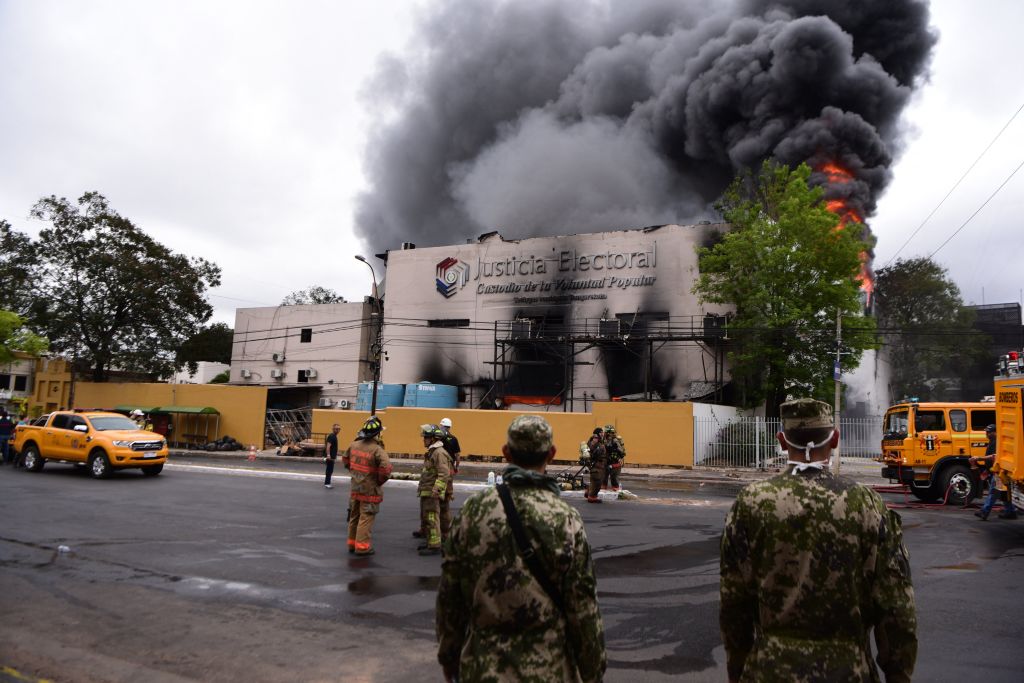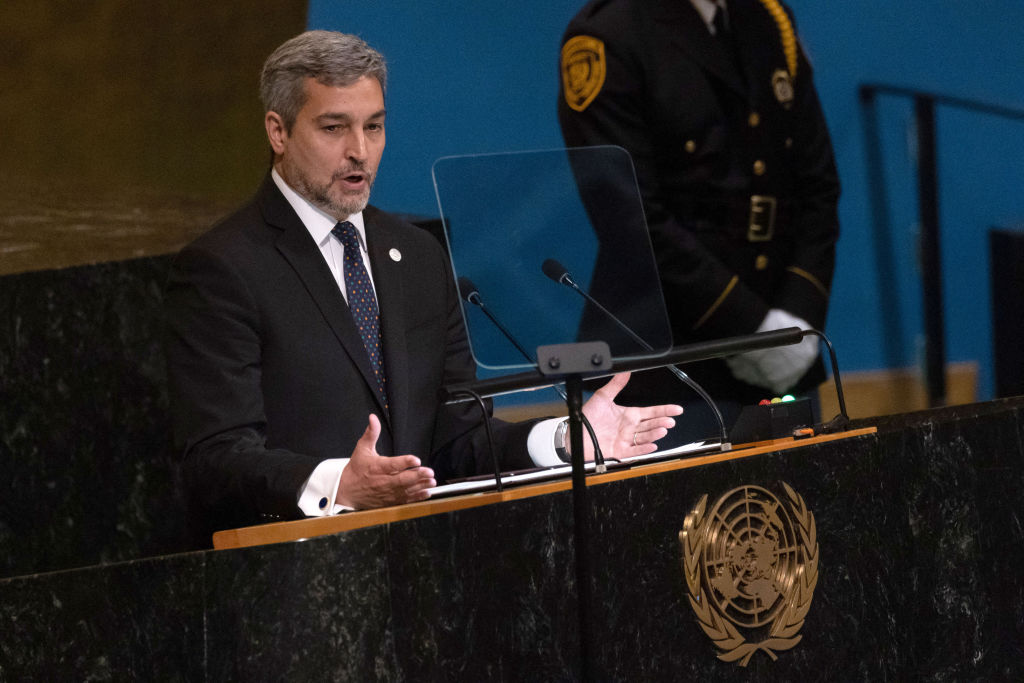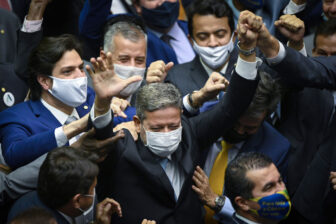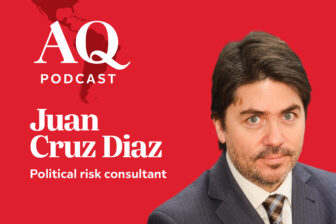As Paraguay’s April 2023 general elections approach, the ruling Colorado Party is in disarray. It has long dominated Paraguayan politics, remaining in power even amid the volatile anti-incumbent wave that has consumed Latin America over the past few years. With a brand centered on pro-business stability and traditional values in a nation often considered the region’s most Catholic country, it has held power for all but five of the last 77 years, losing only the 2008 election when two candidates split the party’s voters.
But ahead of its December 18 primary, the party faces major corruption scandals and an internal rift that could open another rare window of opportunity for the opposition. The party’s two factions—led by current President Mario Abdo Benítez and former President Horacio Cartes, respectively—both face allegations of high-level corruption. Now, each fears prosecution should the other come to power.
It has already been a turbulent year. In February, Abdo’s interior minister released evidence linking Cartes, a major business owner and one of the richest men in the country, to money laundering networks and cigarette smuggling—perhaps Paraguay’s most prominent illicit activity. Then, in July, the U.S. State Department designated Cartes a participant in “significant corruption,” alleging connections to transnational organized crime.
Just weeks later, it made the same designation of a leader of the other faction: Abdo’s sitting Vice President Hugo Velázquez, an early favorite to win the party’s primary. He dropped out of the race but has not resigned. Cartes and Velázquez both deny the allegations as domestic investigations continue.
Then, in late September, a massive fire broke out at the headquarters of Paraguay’s Superior Court of Elections. Thousands of electronic voting machines—around a third of the country’s supply—were destroyed, but officials say the losses will not delay party primaries scheduled for December 18. The cause of the fire is still under investigation.
Despite the heightened drama, the two Colorado Party factions thus far offer little in terms of policy differences; both are expected to promote pro-business, socially conservative platforms that focus on job creation. Whoever wins will emerge as the favorite to win the general election in April. However, the losing faction may run its own competitive candidate. This would also give an outside shot at the presidency to the opposition, which is currently divided but plans to coalesce behind a single candidate.
A High-Stakes Election
The new allegations against Colorado Party leaders come at an especially sensitive time. Corruption and organized crime are top-of-mind for the public after a string of high-profile killings. In May, the country was shocked when its top prosecutor was murdered on his honeymoon after an investigation shut down a major drug laboratory inside Paraguay’s largest prison. In June, the director of the prison was also killed.

Photo by Norberto Duarte/AFP via Getty Images
Moreover, Paraguay may soon receive massive windfalls of revenue after it renegotiates the terms surrounding the colossal Itaipú Dam it shares with Brazil; this renegotiation has been called the most important foreign policy priority in modern Paraguayan history. The original Itaipú Treaty was signed in 1973 by Paraguay and Brazil under dictators Alfredo Stroessner and Emílio Garrastazu Médici, respectively. It created the world’s largest hydroelectric facility—eclipsed only by China’s Three Gorges Dam in 2012—and set terms that have long been viewed in Paraguay as deeply unfair.
Paraguay uses little of its allotted energy from the dam, but it must sell its unused energy to Brazil at below-market rates to pay off a massive debt from the dam’s construction. In 2023, that debt will be paid off and the 1973 treaty will expire. Through its renegotiation, Paraguayans hope to secure the right to sell unused energy to countries like Chile and Argentina at full market rates.
In short, the electorate knows the country stands to gain enormous revenues that can be invested in national development, heralding transformative change—if they aren’t pilfered.
Paraguay has persistently high rates of poverty, inequality and economic informality, even compared to the rest of Latin America and the Caribbean. Its GDP per capita was $5,400 in 2021, far short of the regional average of $8,340. Paraguay handled the COVID-19 pandemic relatively well; the Abdo government rolled out cash transfer and other social programs that blunted the social and economic damage of the pandemic, and in 2020, Paraguay recorded the smallest GDP contraction in the region. In 2021, GDP rose 4.2%. However, most estimates put growth in 2022 at well under 1% due to high inflation and a historic drought that is wreaking havoc on soybeans—Paraguay’s principal export—and the rest of the agricultural sector, the focus of the country’s economy.
This year’s Colorado Party primary is the most turbulent in recent memory. Tensions surrounding the economy, the Itaipú renegotiation and the threat of prosecution hanging over multiple leaders’ heads are likely to boil over during primary season. If they do, Paraguay may experience one of its most competitive—and tumultuous—election seasons ever.
—
Cohen is a doctoral candidate at Pompeu Fabra University.








